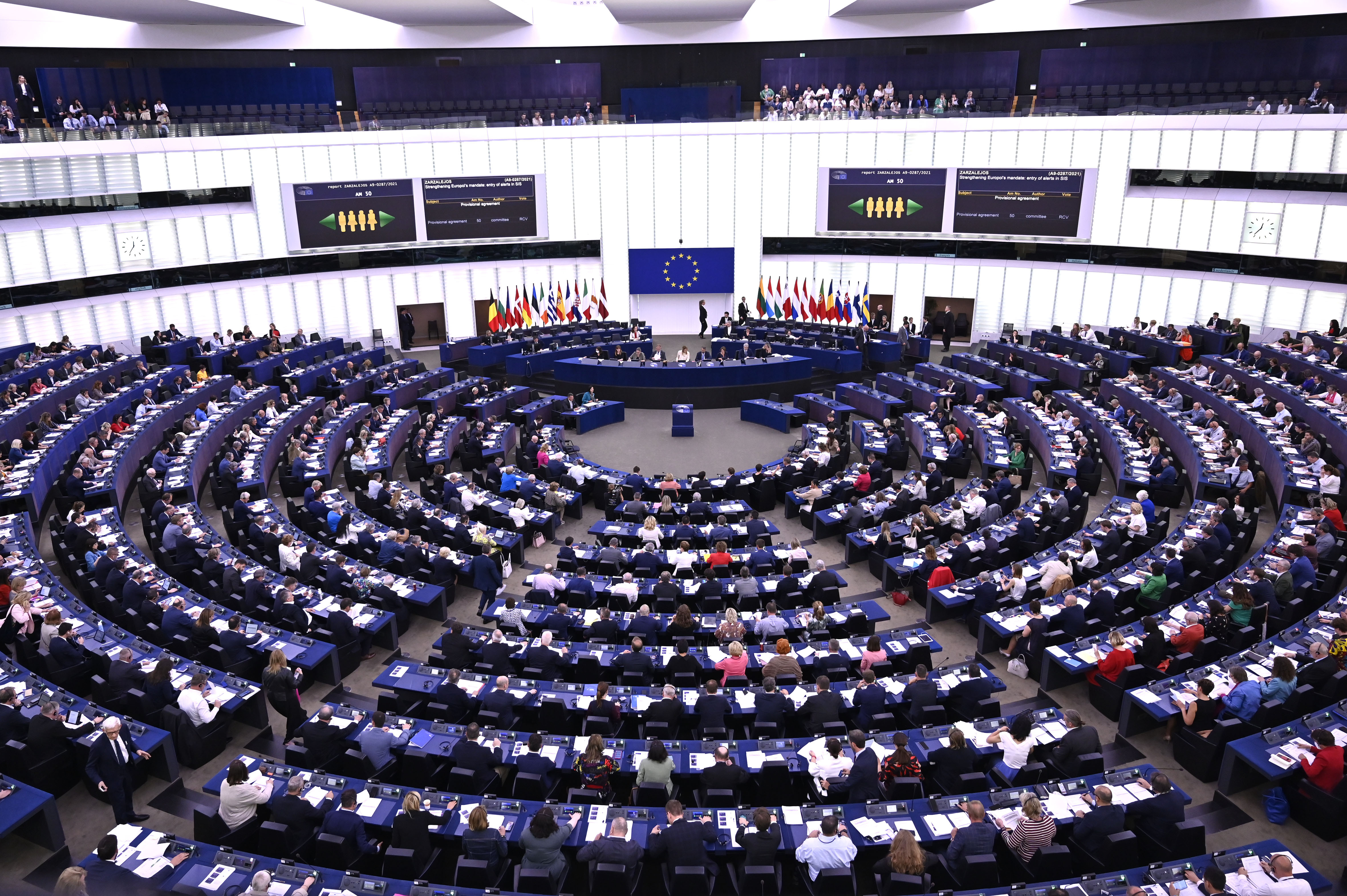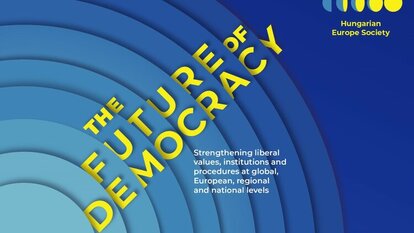publication
The Future of Democracy: Strengthening Liberal Values, Institutions and Procedures at Global, European, Regional and National Levels

The world what we live in is permanently changing, whether it is due to the recent pandemic, Russian war in Ukraine, climate change or changing political environment regarding rule of law in various countries.
A recent publication by the Hungarian Europe Society entitled "The Future of Democracy: Strengthening Liberal Values, Institutions and Procedures at Global, European, Regional and National Levels" examines the dynamic future of Europe, which is shaped by these processes. It analyses the consequences of the war, illiberal and other tendencies in the European democracy and much more.
This is an excerpt from the publication, which you can download here.

Alliance Security after February 24: Where do we need to go now?
The entire world has responded to Russia’s invasion of Ukraine with a mixture of shock and horror. Russia has been condemned in the UN Security Council and by an overwhelming vote in the UN General Assembly. As the Russian invasion enters its second month and Moscow ramps up the military pressure by shelling urban populations in Kyiv, Mariupol and Kharkiv while trying to get its forces into the Ukrainian capital, it is time for an initial assessment. Here we see a mix of good and bad which is typical of the opening phases of long and
protracted conflicts.
On the positive side of the ledger, we have admired the fighting spirit of the Ukrainians, making a stand for the values of freedom, democracy and the right to belong to the European family of nations. At a time of rising authoritarianism and democratic backsliding, it has been inspiring to see that political elites, social celebrities and ordinary citizens are still willing to fight and die for the right to determine their own future. The transatlantic community, despite being strained recently by the chaotic withdrawal from Afghanistan and arguments over
AUKUS, has pulled together in a remarkable display of unity and resolve. President Macron has retracted his comment about NATO being “brain dead” and now says that the alliance is indispensable. Not only the alliance but the broader international community has proved ready, willing and able to adopt draconian sanctions against Moscow, including Indo-Pacific partners seemingly remote from the conflict or neutrals like Switzerland that normally stand aside. The manner in which so many major western companies have spontaneously joined
this effort, boycotting Russia or divesting their investments and assets there, has been as
surprising as it has been commendable.
Yet on the more negative side we are still witnessing appalling human suffering and a mounting humanitarian crisis affecting the 5.5 million Ukrainians displaced both within Ukraine and beyond its borders. From the perspective of military strategy and operational competence, Russia’s performance has been lamentable; but Russia still has the advantage of geographic proximity and the capacity to outmatch the Ukrainian army in reserves and heavy weaponry, despite the considerable Russian losses in manpower and equipment thus far. It is
compensating for its military failings by resorting to terror tactics, as in the shelling of cities and deliberate targeting of civilians. Russia’s disregard for legal or moral restraints gives it an advantage in controlling the escalation ladder. Moreover, in the G77 beyond the West, there are still too many fence sitters among the world’s big, populous countries such as India or South Africa, which have refused to impose sanctions or even condemn Russia’s aggression. Finally, we do not seem close to a ceasefire, let alone a Russian disengagement or a political settlement for Ukraine. Moscow has made exorbitant and nebulous demands such as demilitarisation, de-Nazification and the protection of Russian speakers which it would be impossible for Kyiv to concede without giving Russia a permanent controlling role in ist domestic affairs. Ukraine will be reluctant also to concede at the conference table what it hasn’t lost militarily on the battlefield. Desperate for a military success as the setbacks mount, Putin will also use the peace talks for show while he tries to seize the additional Ukrainian territory
he needs to be able to impose his own terms.
As the war in Ukraine becomes prolonged and unpredictable, the risks for the transatlantic alliance will increase, as will the shockwaves of the conflict as they spread across the world. Thus the allies will need both a European and a global containment strategy as they deal with a crisis that has major economic and humanitarian as well as military dimensions. Four tasks in the security field stand out:
- to bolster NATO’s defences so as to have the military capability to repel any form of
Russian attack on land, at sea, in the air, or through space and cyberspace. - to preserve Ukraine as an independent and sovereign state with international guarantees
of its future security. - to isolate and weaken Russia and China (to the extent that Beijing allies with Moscow)
so as to deter them from future military aggression and contain their capacity to harm
Western interests on the global stage. - to reduce Western strategic dependencies on authoritarian states and economies so as
to increase the West’s scope for autonomous action.
Jamie Shea, Senior Adviser on Security and Defence Policy, European Policy Centre; former Deputy Assistant Secretary-General for Emerging Security Challenges, NATO, Brussels.
Download the full publication here:
About the author
Hungarian Europe Society is a non-governmental and non-partisan organisation based in Budapest (Hungary). It intends to be involved in the ongoing international dialogue on the future of liberal democracies and wishes to promote Hungary’s ever-deeper integration into Europe.
Editors István Hegedűs and Erik Uszkiewicz prepared the publication with the most intriguing papers by international authors. The publication was supported by the Friedrich Naumann Foundation for Freedom.
